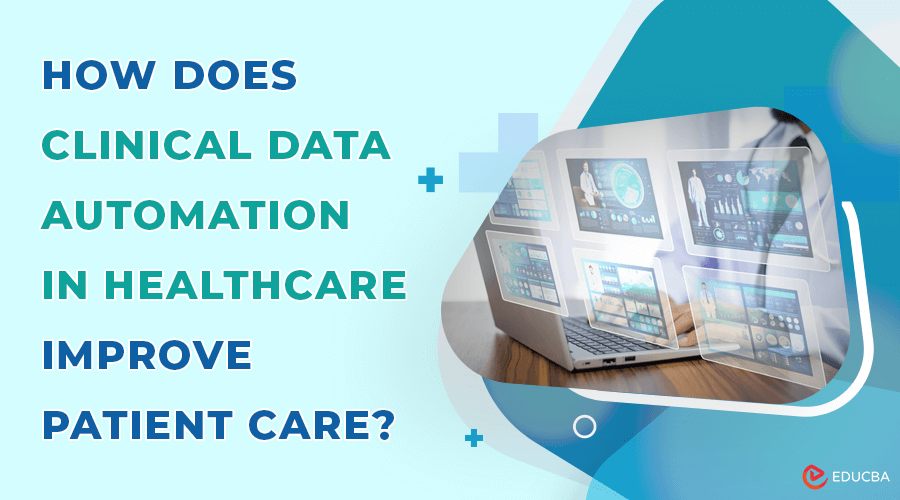
Clinical Data Automation in Healthcare: Overview
Clinical data automation in healthcare is transforming the way medical services are delivered. By streamlining the management of massive volumes of patient information, automation reduces errors, saves time, and boosts efficiency. It provides clearer insights for doctors, enabling faster, more accurate diagnoses and treatments. For patients, it means quicker access to care and better outcomes.
Modern systems now analyze data in real-time, making healthcare smarter and more proactive. But what technologies are driving this shift? How are patients benefiting from it? What does the future of healthcare automation look like? Let us explore these important questions.
Technologies Driving Clinical Data Automation
Advanced technologies form the backbone of clinical data automation in healthcare, enhancing efficiency while reducing manual workloads. Key innovations include:
- Machine Learning Algorithms: Identify patterns in patient records to improve diagnosis and treatment planning.
- Electronic Health Records (EHRs): Integrate automation for streamlined data management and retrieval.
- Natural Language Processing (NLP): Analyze unstructured data, like physician notes, for actionable insights.
- Cloud-Based Platforms: Ensure seamless sharing of real-time medical information across care teams.
These tools simplify complex workflows and improve the process of abstracting data in healthcare. By automating data collection and analysis, hospitals can allocate resources more effectively and foster collaboration among healthcare providers, ensuring better patient care at every step.
Reducing Medical Errors Through Automated Systems
Automation is a game-changer in minimizing errors during patient care, costing the U.S. healthcare system around $20 billion annually. Here is how automated systems make a difference:
- Automated Alerts: Flag potential medication interactions to prevent adverse effects.
- Accurate Transcription: Digitally convert patient records, reducing errors from manual entry.
- Connected Devices: Consistently monitor vital signs to detect abnormalities early.
Automation alleviates the pressures of repetitive tasks, allowing healthcare staff to focus on critical responsibilities. AI-driven tools enhance data accuracy and create reliable audit trails, fostering a safer environment for patients and providers.
Enhancing Patient Engagement with Real-Time Data Insights
Real-time data insights empower patients to participate actively in their care. Clinical data automation in healthcare ensures transparency and equips patients with tools to make informed decisions. Key benefits include:
- Secure Patient Portals: Provide instant access to health records.
- Wearable Devices: Track fitness and vital signs continuously, offering actionable feedback.
- Timely Notifications: Remind patients of appointments and medication schedules.
These advancements strengthen trust between patients and caregivers. Patients can make lifestyle adjustments that improve outcomes by understanding trends in their health metrics, such as blood sugar levels or heart rates. This is especially valuable for patients dealing with complex conditions that require specialized care approaches, like Mesothelioma Treatment, where informed patient participation can significantly impact quality of life.
Overcoming Challenges in Implementing Automation for Healthcare Settings
Despite its potential, implementing clinical data automation in healthcare comes with challenges. Common hurdles include:
- High Costs: Advanced technologies require significant upfront investment.
- Resistance to Change: Staff may prefer traditional workflows over automated systems.
- Data Security Concerns: Protecting sensitive patient information from breaches is critical.
- Interoperability Issues: Legacy systems may not integrate easily with newer technologies.
To succeed, healthcare facilities must invest in staff training, address concerns about job roles, and ensure compliance with data privacy regulations. Overcoming these barriers lays the groundwork for long-term benefits like better care quality and operational efficiency.
Future Trends and Innovations Shaping Clinical Data Use
The future of clinical data automation in healthcare is bright, with cutting-edge innovations poised to reshape the industry:
- Predictive Analytics: Anticipate patient outcomes, enabling early interventions.
- Blockchain Technology: Securely store and share medical records with transparency.
- Wearables: Offer continuous remote monitoring of chronic conditions.
These advancements promise personalized, proactive care while streamlining operations. As artificial intelligence evolves, diagnostic tools will become even more precise, further revolutionizing healthcare delivery.
Final Thoughts
Clinical data automation in healthcare is a powerful driver of transformation. It optimizes workflows, reduces errors, engages patients, and unlocks new possibilities for innovation. As automation technologies advance, they will make healthcare smarter, safer, and more efficient for providers and patients.
Embracing this change today paves the way for a healthier tomorrow.
Recommended Articles
We hope this article on clinical data automation in healthcare has been insightful. Check out these recommended articles for more information on how automation transforms healthcare and improves patient care.

